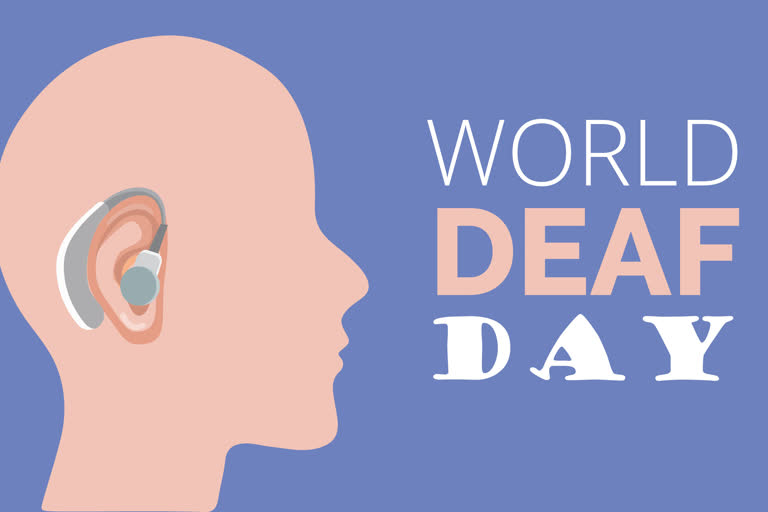The World Federation Of The Deaf (WFD) states, “Sign languages are the only languages deaf people can use effortlessly and they are the only way for the deaf people to participate and be fully included in their communities. The right to sign language and to belong to a Deaf Community is a cultural human right. The right to sign language is also linked to their social and economical right to receive a quality education in their national sign language and to work in an inclusive environment. The provision of qualified and accredited sign language interpretation is the only way to ensure the equality and non-discrimination of deaf people in their right to access all spheres of society.”
Human Rights Of The Deaf
WFD explains that Human rights are universal, indivisible and interconnected. They belong to all people, regardless of gender, national or ethnic origin, colour, religion, language, or any other status such as disability or deafness. Unfortunately, due to societal prejudices and incorrect assumptions, deaf people’s rights are often overlooked or denied, especially in developing countries.
Here are some of the human rights it talks about, regarding the deaf community in every country:
- Sign Language Rights
- Deaf Culture and Linguistic Identity
- Bilingual Education
- Lifelong Learning
- Accessibility
- Equal Employment Opportunities
- Equal Participation
Disabling Hearing Loss
According to the World Health Organisation stats, there are 466 million people in the world with disabling hearing loss. This is over 5% of the world’s population; 34 million of these people are children.
But what exactly is disabling hearing loss? WHO defines it as:
- Adults (15 years and older): hearing loss greater than 40 decibels (dB) in the better hearing ear;
- Children (0 – 14 years of age): hearing loss greater than 30 dB in the better hearing ear.
Hearing Loss vs Deafness
Here is how WHO draws out the difference between the two:
‘Hard of hearing' refers to people with hearing loss ranging from mild to severe. People who are hard of hearing usually communicate through spoken language and can benefit from hearing aids, cochlear implants, and other assistive devices as well as captioning.
Deaf' people mostly have profound hearing loss, which implies very little or no hearing. They often use sign language for communication.
Causes and Prevention
People can be either deaf or have hearing loss by birth or it can be developed over the years of one’s life. The National Health Portal (NHP) of India states the following as the possible causes of deafness:
- Infections including ear infection, meningitis etc.
- Ageing
- Earwax build-up
- Occupational hazards ( those who are working in noisy areas)
- Trauma
- Heredity
- Certain medicines
- Ear disease
- Long-term exposure to loud noise
Therefore, in order to prevent such damage to your ears over time, here is how you can prevent it from worsening:
- Avoid inserting sharp objects in the ear
- Avoid noisy places
- Turn down the volume of the TV, stereo, especially the headset on the music player
- Do not use any kind of oil or liquid into your ears unless advised by a doctor
- Never go to roadside quacks/unqualified person for your ear cleaning
- Consult your doctor at earliest if you feel there is any problem with your hearing
Deafness and hearing loss are both serious conditions and they should be taken care of at the earliest. However, people with hearing loss can still communicate in a normal way by using a hearing aid, etc. but the communication gap between a normal and a deaf person can be fulfilled with the use of sign language. There are various institutions where sign language can be learnt and a lot of information regarding the same is also available on the internet.
Thus, the deaf community is also a part of the entire world population and they should not be neglected at any cost. They should be considered equal and their rights must be respected.



